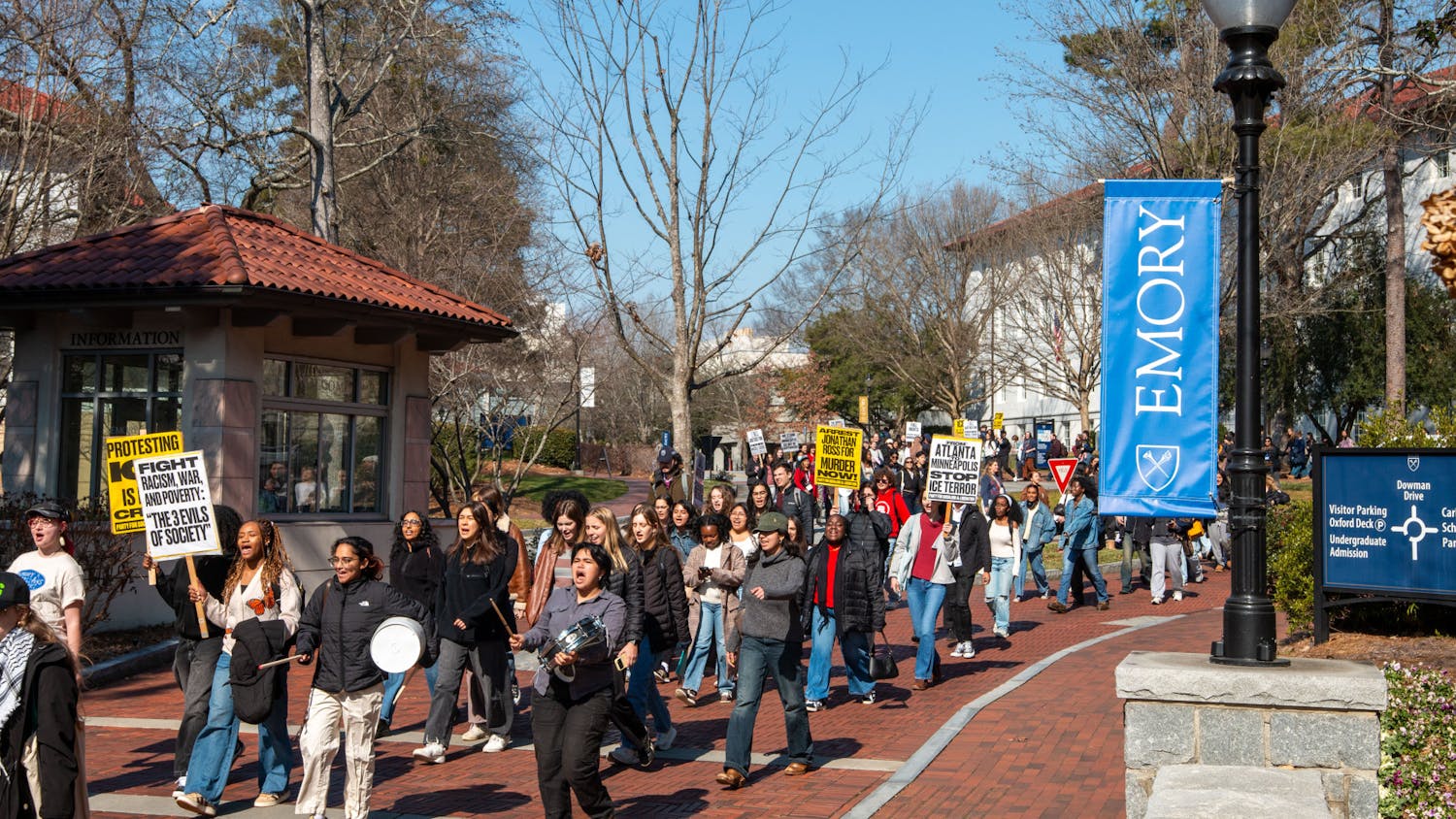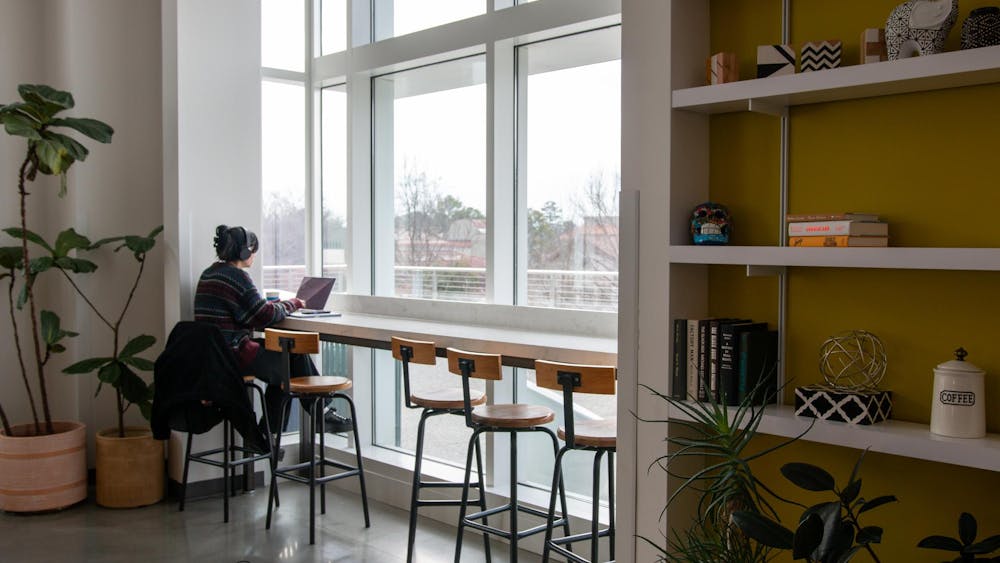
At an April 24 online town hall, outgoing University President Claire E. Sterk and Interim Provost and Executive Vice President for Academic Affairs Jan Love did not provide definitive answers to the myriad questions surrounding the nature of the upcoming fall term, citing the unknown trajectory of the ongoing pandemic. Over 2,700 people attended the town hall, which was conducted over Zoom.
Emory community members were allowed to submit questions to administrators prior to the gathering, which were compiled and answered as the town hall progressed.
Sterk and Love began by stressing the uncertainty of this time and recognizing the expansive change to the University’s operations that the pandemic has engendered. Love noted that the University is a traditionally decentralized structure, but the coronavirus has forced greater collaboration between various entities across Emory and has fostered unilateral decision-making.
Love also publicly apologized for the University’s miscommunication regarding the terms of the $1,000 stipend for low-income students of highest need, promising to avoid similar mistakes in the future.
While Love stated that a decision regarding the status of the fall semester would be made in “some weeks,” no official change has been made to the incoming class’s deposit deadline, which was previously cited by Love as the impetus for a swift decision. Love did not address this discrepancy.
“We will explore every possible means of having a residential learning program in the fall. We want to provide that only in the safest possible way,” Love said. “We are imagining we can produce it safely, but we don’t actually have the answers to make that happen.”
In an April 24 email to all students, Deputy Provost for Academic Affairs Christa Acampora announced the creation of the Academic Continuity Group, which will work with a variety of University teams to formulate a decision.
“Together with [the Office of Critical Event Preparedness and Response], we are drawing on all of these insights and operational expertise to develop a plan that will allow us to deliver on our academic mission, maintain standards, support path-breaking research and advance the priorities of the university,” Acampora wrote.
Love announced that the University will not accommodate a “Double-A” grading system, in response to a petition by the larger student body and a survey circulated by the College Council, as the “accrediting body to which Emory answers will not allow such a grading system.”
Emory Healthcare President and CEO Jonathan Lewin followed Love to answer questions regarding public health and Georgia Gov. Brian Kemp’s announcement that certain businesses could reopen on April 24. Lewis stressed the importance of social distancing.
“As we look to managing the phased reopening that the governor is recommending, we have to realize that succeeding in this new normal requires the collective and measured efforts of all of us,” Lewin said. “I’d like to just to remind everybody as we deal with the phased reopening to stay home as much as you can and continue social distancing.”
Lewin also warned of antibody tests that do not provide reliable results. Antibody tests developed at Emory, Levin said, are more reliable and are being used to test Emory Healthcare patients and employees.
Executive Vice President for Business and Administration and Chief Financial Officer Christopher Augostini also answered questions regarding finances.
He reiterated the financial hardships that Emory will endure, culminating in a $45 million net loss of revenue, and underscored the current financial measures the University has implemented to keep staff and faculty employed.
Augostini said that the University is assembling a team to decide whether certain “funding sources are appropriate.” Such sources include the federal government, which allocated approximately $8 million to Emory through the Coronavirus, Aid, Relief, and Economic Security Act, the largest stimulus package in U.S. history. The act requires that half must be used for student emergency financial aid grants.
“We will actively pursue such funds to support COVID-19 response from student support funds to disinfectant sprays to everything in between,” Augostini said.
Private universities such as Harvard University (Mass.) and Stanford University (Calif.) have announced they will not accept any aid due to their belief that aid should go to universities with smaller endowments.
Vice President and Dean of Campus Life Enku Gelaye reminded listeners of resources Emory is providing, like the Emory Virtual Community Hub and Emory Healthcare telehealth services. She stated that the Emory Together Fund has disbursed $2.2 million to undergraduate and graduate students.
More town halls will be held in the future to foster transparency, Love concluded.







